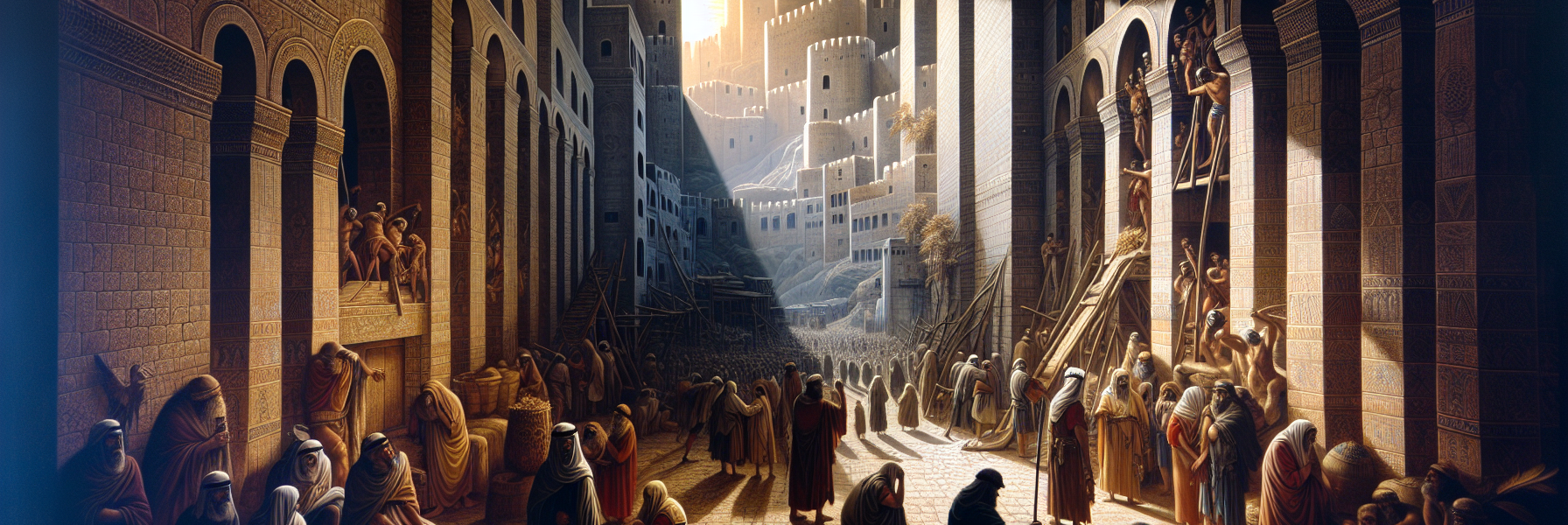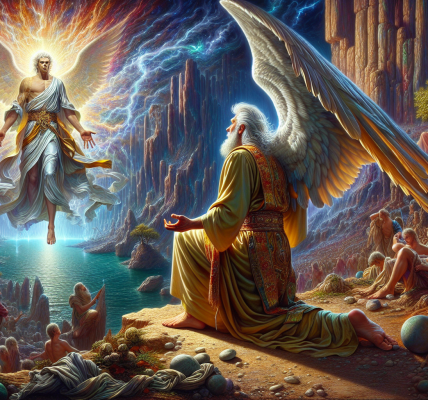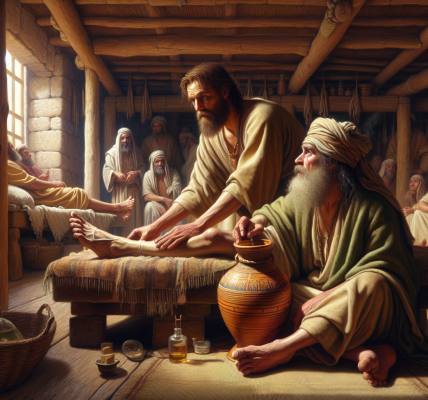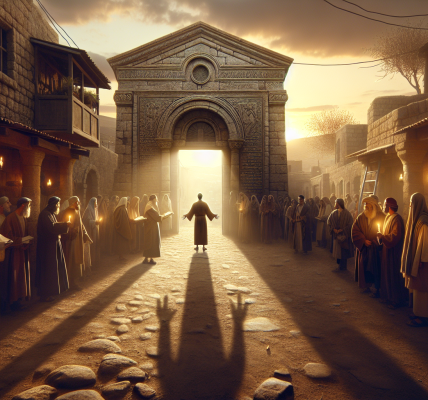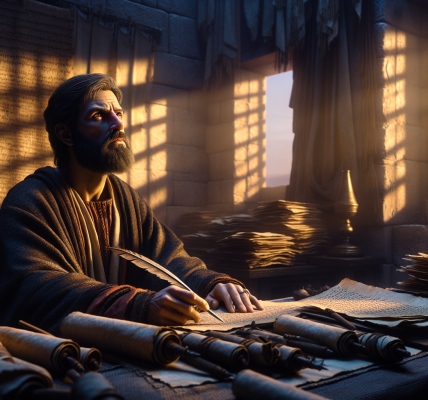**The Faithful Purchase: A Story of Hope in Despair**
The sun hung low over the city of Jerusalem, casting long shadows across the narrow streets. The air was thick with tension, for the mighty army of Babylon had surrounded the city, their siege ramps pressing against the walls like the fingers of a strangler. Inside the city, hunger gnawed at the people, and despair clung to every heart. King Zedekiah sat uneasy on his throne, his reign crumbling like the morale of his soldiers.
Yet in the midst of this turmoil, the word of the Lord came to Jeremiah the prophet, as he was confined in the courtyard of the guard in the royal palace. The king had imprisoned him there for speaking the truth—that Jerusalem would fall to Babylon, and Zedekiah himself would be taken captive. The people despised Jeremiah for his words, for they clung to false hopes of deliverance.
Then, one evening, as Jeremiah knelt in prayer, the voice of the Lord spoke clearly to him:
*”Behold, Hanamel, the son of Shallum your uncle, will come to you, saying, ‘Buy my field that is in Anathoth, for the right of redemption by purchase is yours.’”*
Jeremiah lifted his head, pondering the strange command. Why would the Lord ask him to buy land when the enemy was at the gates? The Chaldeans would soon overrun the land, making any purchase seem foolish. Yet before he could question further, the heavy door of his prison creaked open, and there stood Hanamel, just as the Lord had foretold.
“Jeremiah,” Hanamel said, his voice weary, “my field in Anathoth—it is yours by right of kinship. Buy it for yourself.”
Jeremiah studied his cousin’s face, seeing the desperation in his eyes. Hanamel knew the land was as good as lost, yet here he was, seeking a buyer. The prophet nodded slowly. He understood now—this was no mere transaction, but a sign from the Lord.
With solemn determination, Jeremiah summoned Baruch, his faithful scribe, and before witnesses, he weighed out seventeen shekels of silver. The coins clinked as they were counted, a sound of defiance against the despair that gripped the city. Carefully, Jeremiah signed the deed, sealed it, and placed it in an earthenware vessel so that it would last for many days. Then he handed a copy to Baruch, saying,
*”Thus says the Lord of hosts, the God of Israel: ‘Take these deeds, both this sealed deed of purchase and this open deed, and put them in an earthenware vessel, that they may last for a long time. For thus says the Lord of hosts, the God of Israel: Houses and fields and vineyards shall again be bought in this land.’”*
The men who witnessed the transaction exchanged uneasy glances. How could land be bought when the kingdom was on the brink of destruction? Yet Jeremiah, his face alight with divine certainty, lifted his hands and prayed aloud:
*”Ah, Lord God! Behold, You have made the heavens and the earth by Your great power and outstretched arm. Nothing is too hard for You. You show steadfast love to thousands, but repay the iniquity of the fathers into the lap of their children. Great and mighty are You, O Lord, whose name is the Lord of hosts. Yet You have said to me, ‘Buy the field for money and get witnesses’—though the city is given into the hand of the Chaldeans!”*
Then the Lord answered Jeremiah, His voice like thunder in the prophet’s soul:
*”Behold, I am the Lord, the God of all flesh. Is anything too hard for Me? Therefore, thus says the Lord: Behold, I will give this city into the hand of the Chaldeans and into the hand of Nebuchadnezzar king of Babylon, and he shall capture it. Yet I will gather them back to this place, and I will make them dwell in safety. They shall be My people, and I will be their God. Fields shall be bought in this land of which you say, ‘It is a desolation, without man or beast; it is given into the hand of the Chaldeans.’”*
Jeremiah’s heart swelled with hope. Though destruction loomed, the Lord had promised restoration. The sealed deed in the earthen jar was not just a record of a purchase—it was a covenant of hope, a promise that one day, the children of Israel would return.
As the night deepened and the distant shouts of Babylonian soldiers echoed beyond the walls, Jeremiah smiled. The world saw only ruin, but he saw the unseen—the faithfulness of God, who would bring life even from the ashes of judgment.
And so, in the darkest hour, the prophet bought a field—because he believed in the God of resurrection.
